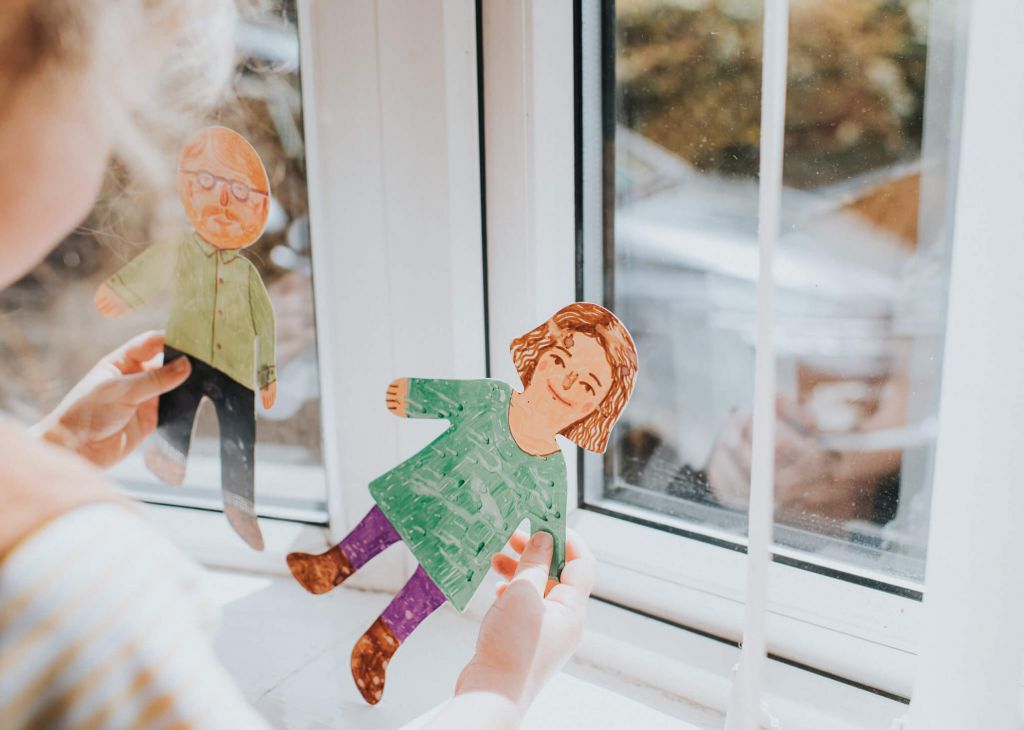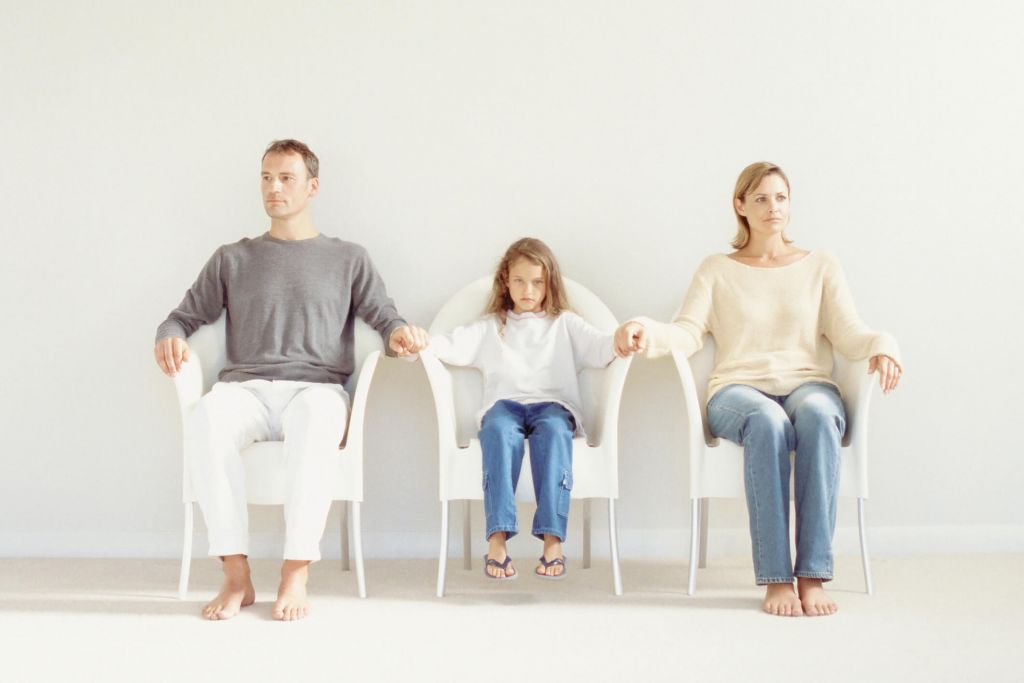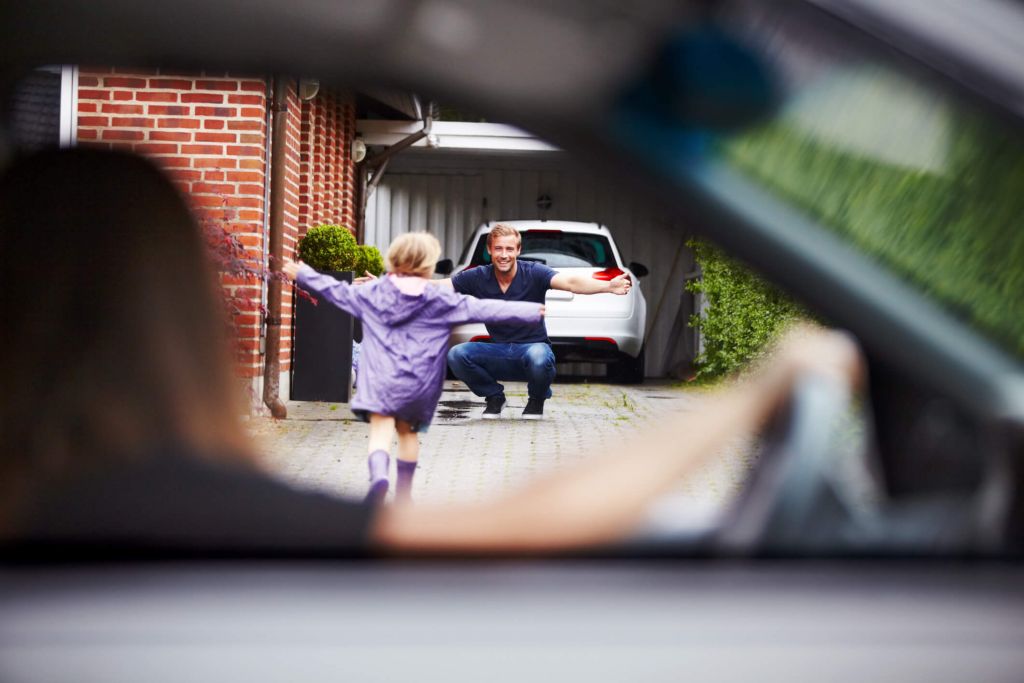
The divorce of parents is a serious shock to a child of any age. In many ways, too, because adults at this crisis point make the situation worse with their behavior. How do you explain to a child why dad and mom are no longer together?
Telling a child that their parents are getting a divorce is not easy. Even if adults understand that divorce is inevitable, they still argue or have already separated, children cannot imagine the breakup of the family. To them, it is the loss of everything they know that gives them security and self-esteem. Unfortunately, many people think that divorce is something that a child will quickly get used to – such parents neglect to conduct an appropriate conversation, convinced that the toddler will not remember it anyway. Meanwhile, psychologists stress that such a conversation will always remain in the child’s memory, and it is important to prepare well for it.
First of all, children of different ages and developmental levels have different perceptions of the idea of divorce, the reasons fordivorce and what it means for their future. Therefore, it is important to adapt the general recommendations to the needs and psychological maturity of a particular child. If there are several children in the family, you may need two or three versions of the conversation.
It is also worth knowing that there is such a psychological phenomenon as loyalty conflict: the child of divorced parents from birth and forever is part of both of them, both biologically and psychologically. Their arguing and breaking up can seem to a toddler like having to almost physically tear themselves in two. This conflict is essentially impossible to resolve. Parents can only keep it from getting worse.

Divorce is not his or her fault. Children tend to take responsibility and blame for their parents’ separation. Therefore, say loudly and repeatedly that divorce doesn’t happen because the child is bad, didn’t do something, or vice versa.
All feelings are normal and acceptable. Divorce is a shock and a stress, and the child’s reactions can be extremely different. He or she may be angry at both parents or just one, scream, cry, or simply remain silent. Eventually, he or she may even feel joy that the parents have stopped arguing. Reactions can also be very strange, but everyone deals with emotions in their own way. You need to explain this to your child and show them full support so they don’t feel bad about themselves.
Mom and Dad still love them and will remain his parents. Many children see divorce and the departure of one parent from the home as their ultimate loss. If you know that you will share custody with your partner and both of you will spend time with your child, make it clear to him or her and calm their fears. If you are not sure about this or there are signs that it will be different, this is a topic for a separate conversation.

It won’t have to choose someone else’s side. Remember the loyalty conflict and don’t make it worse. It is important that your child not have to make these choices. Don’t demand it of him or her, don’t ask who he or she loves more and who he or she would rather stay with. Also, don’t treat him or her like an object that can be the object of your arguments with your ex-partner.
Everything will be fine, and divorce is not the end. Make your child understand that the decision to separate will make his or her parents happy and that it means change, but not the end. Even if you know it may be hard in the future, don’t burden your toddler with that feeling. He needs the faith that everything will work out in order to cope with this difficult process.
All modern recommendations argue that both parents should have the conversation about divorce. They need to act as a team, not opponents. Having both parents present really helps the child perceive the conversation better. The problem is that couples who are going through a divorce are rarely able to work together in unison, even when the child’s best interests are at stake. In such a situation, it is better for each parent to talk to the child alone. Sometimes two separate calm conversations with each parent are better than one big argument that benefits no one.
Growing children of divorced parents, Surveys show, don’t always remember exactly what they were specifically told when breaking the news, but they always remember their feelings and the setting of the first conversation. I don’t have any clear recommendations for place and time – you’re the parent, you’re more visible. One thing is important: don’t have this important conversation on the run, on the road, before bedtime, before your child goes to school, etc., devote a separate half hour/hour of free time to it and find a place where you won’t be constantly distracted
It’s also a good idea to be honest – you don’t have to reveal the reasons for the divorce, but don’t fool your child into thinking it’s a temporary situation. Don’t pretend that nothing will change in your life. By doing so, you will delay the process of accepting and adapting to the situation.
Before the conversation, control your emotions, do not burden your child with them, calm down and do not speak negatively about your partner. You have the right to feel grief, anger and pain, but these emotions should not be reflected on the child. And without them it is a huge stress for him and a very unpleasant experience.

Present the divorce as a decision that was made for the common good (in fact, it often is). It’s important for your child to understand that this is a difficult decision, but one that is made by adults and is justified, and that he or she has no control over it. Like other decisions, it involves changes in the lives of all family members, so don’t tell your child that this is just a temporary situation. He or she needs to know that nothing will be the same after the divorce, but that doesn’t mean it will be worse.
Remember to emphasize and repeat as necessary: you and your spouse are divorcing, but you will both remain your child’s family forever. The makeup of the household will change, but the family members will remain the same and continue to love the baby. Hold back your grief, bitterness and aggression towards your partner. Be straightforward and calm, and don’t manipulate emotions or information – you will hurt your child and may traumatize him or her, making adult life more difficult. Ultimately, you will also make your relationship worse.
Inform your child about the specifics of the changes at home. If you don’t tell your toddler about them, he will begin to imagine them on his own and may come to amazing and disturbing conclusions. Explain to him what shared custody will look like, with whom he will live, where the other parent will be, in the case of siblings, emphasize that they will not be separated. If the divorce involves moving, let your child know that as well. Let them choose their new room or at least some furnishings. Reassure your child that he or she will not have to change schools, that he or she will continue to have guests over for birthdays, that he or she will see grandma and grandpa, etc.
Also ask if your child has any questions. Maybe there is something that is clear and obvious to you, but to your child is a big unknown and a cause for concern. And be prepared for any strange or unexpected questions. Take them seriously and under no circumstances ridicule them. If your child asks these questions, it’s because they are issues that are important to them.
Be prepared for any reaction. Children may cry and become hysterical or get angry and start throwing things. They may not react in any way and go back to their daily activities. Some children ask questions and some remain silent. For those that ask, you must answer. For those that are silent, you need to create a space where they have the opportunity to express their feelings not through words. In any case, be patient, give your child time and lots of love. For him, your divorce is often the end of the world as he knows it.
Talking to your child about divorce can be one of the worst things in a parent’s life, but it cannot be avoided. Approach it with a plan and calm, and above all, be patient. Your child also needs time to understand the situation and adjust.
Interested in the topic of relationships? Read also how to recognize a toxic relationship.
Main article photo: photo by westend61 / Getty Images